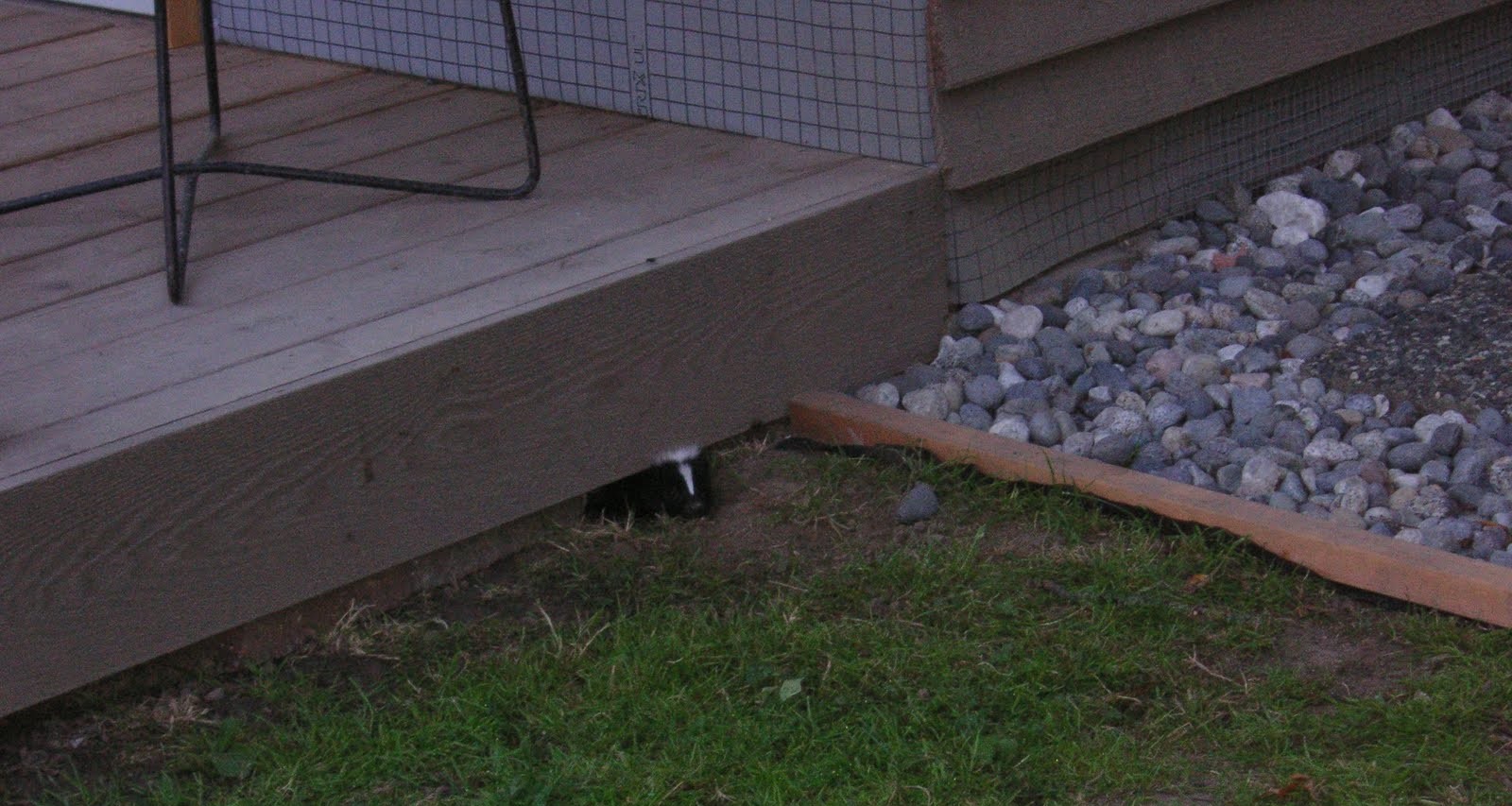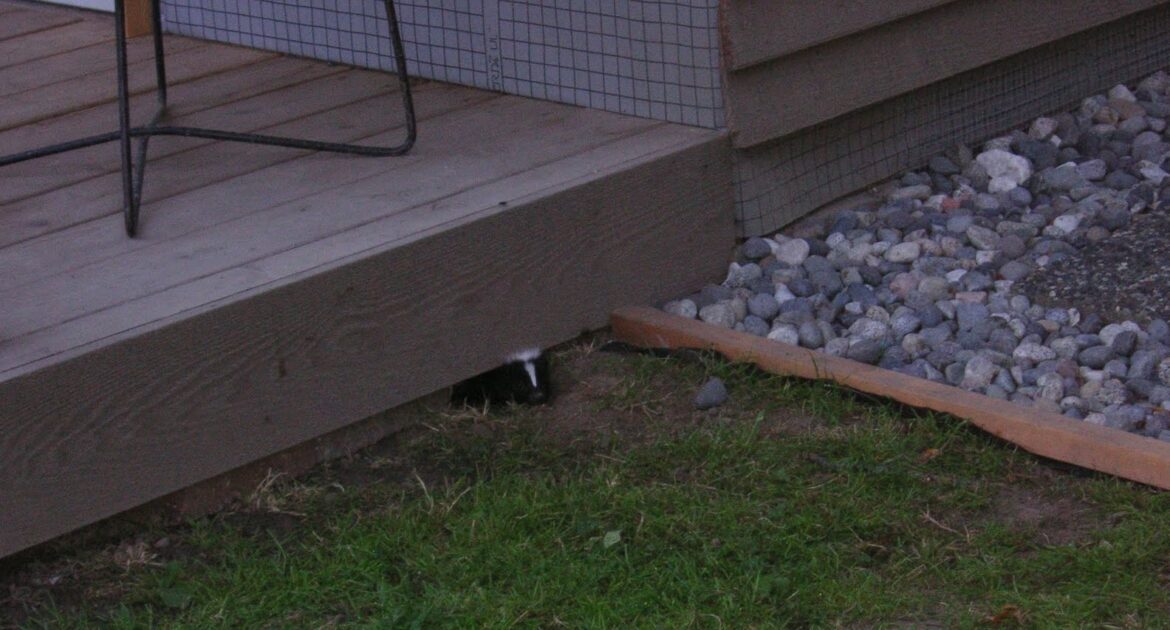Are skunks invading your garden and leaving their unmistakable scent behind? Don’t worry, we’ve got you covered! In this guide, we’ll show you how to skunk-proof your garden using certain plants and effective strategies. By taking proactive measures, you can create a welcoming outdoor space while keeping skunks away.
Skunks are naturally drawn to yards and gardens, but with the right plants and techniques, you can deter them from wreaking havoc on your precious plants. We’ll explore what attracts skunks to your yard and share valuable insights on how to keep them away. From plants with strong smells to simple yet effective tactics, we’ll provide practical tips to protect your garden. And remember, prevention is key! By addressing the issue now, you can prevent any potential damage and maintain a harmonious environment for both your family and the wildlife.
Acting now to tackle the issue is key, preventing damage to your yard and keeping everyone happy—your family and the wildlife. Let’s explore what attracts these surprise guests to your yard and how you can prevent their return.
What Attracts Them to Your Garden?
Finding unexpected animals in your backyard can be surprising! Before we discuss how to keep them away, it’s important to understand what might be attracting them.
What attracts a skunk to your yard? Like most animals, skunks and other wildlife are drawn to food and shelter. If your garden provides easy meals and safe hiding spots, it becomes an appealing place for them to stay.
Insects, grubs, and fallen fruits are common food sources that can attract skunks. Even small actions like leaving pet food outside, having open compost bins, or letting birdseed spill from feeders can bring these animals into your yard.
Wildlife also looks for secure places to hide, such as under decks, sheds, or woodpiles. These areas make great shelters for skunks and other creatures. By removing these attractions, you can make your yard less appealing and reduce the chances of wildlife moving in.
Plants That May Repel Skunks
Certain plants are known not to appeal to animals because of their strong smells, spiky textures, or even toxic properties. Incorporating these into your garden can be a great way to subtly send the message that your yard isn’t a comfortable home.
- Marigolds: These cheerful flowers aren’t just a burst of colour in your garden—they’re also known to repel animals with their pungent scent. Plant them along the edges of your yard or garden beds as a natural deterrent.
- Lavender: While we enjoy lavender’s relaxing fragrance, it’s off-putting to many animals. Plant it near garden entrances, decks, or other areas you want to protect.
- Peppermint and Spearmint: The sharp, refreshing smell of mint is another plant that can help ward off troublemakers. Mint spreads quickly, so consider planting it in pots to prevent it from taking over your garden.
- Thyme and Rosemary: These aromatic herbs serve dual purposes. Not only do they repel certain wildlife, but they’re also incredibly useful in the kitchen!
- Daffodils: These vibrant flowers are more than just pretty—they’re toxic to many animals. Plant them around any delicate vegetables or flowers you want to protect.
Other Plants to Keep Wildlife Away
If you’re looking to multiply your efforts, consider adding these additional plants with proven efficiency at discouraging animals:
- Chrysanthemums: Their natural chemical compounds are effective against various animals, not just the ones leaving unpleasant scents in your yard.
- Garlic and Onions: These strong-smelling plants are known to keep multiple types of wildlife at bay, making them a versatile and effective choice.
- Prickly Bushes: Thorny plants like holly or barberry create a natural barrier that deters animals from entering certain areas, providing an added layer of protection.
By incorporating these plants into your garden, you can create an environment that is unappealing to wildlife, ensuring a harmonious coexistence between your plantings and the local fauna.
Techniques to Prevent Wildlife Intrusion
Creating a harmonious coexistence between your garden and local wildlife requires a combination of strategic techniques and plant selection. While plants play a crucial role, implementing additional smart tactics can further discourage unwelcome visitors from intruding into your yard. Let’s explore some effective techniques that will make your yard less appealing to wildlife.
Secure Food Sources
Ensuring that food sources are inaccessible to wildlife is a crucial step in wildlife deterrence. By removing fallen fruits, clearing away scraps, and sealing garbage bins with tight-fitting lids, you eliminate potential food attractions. It’s also essential to avoid leaving pet food or extra birdseed outside overnight, as these can entice wildlife into your yard.
Limit Shelter Opportunities
To discourage wildlife from seeking shelter in your yard, take measures to close off potential hiding spots. Close gaps under sheds, porches, and decks using durable materials like lattice. Additionally, stack woodpiles neatly and off the ground, removing potential hiding places for animals.
Garden Fencing
Installing skunk-proof fencing is an effective technique for protecting your garden from unwanted wildlife. Use fencing that extends underground, blocking animals from digging their way in. Mesh or solid fencing can be used to specifically protect vulnerable garden areas, ensuring that animals cannot access plants or damage your hard work.
Proper Compost Management
Properly managing your compost is essential to minimize odours that may attract wildlife. Use enclosed compost bins to reduce smells and prevent animals from accessing food scraps. Avoid composting meat or oily foods, as these can be particularly enticing to wildlife.
By implementing these techniques, you can create a yard that is less appealing and inviting to wildlife. Maintain a balance between a beautiful garden and a wildlife-friendly space, ensuring a peaceful coexistence with the natural environment.
What To Do If You See Them in Your Yard
Encountering unexpected visitors in your yard can be unnerving, but there’s no need to panic. It’s important to remain calm and avoid startling the animals, as they may react defensively.
Refrain from getting too close or trying to scare away the uninvited visitors, especially if you suspect it’s a skunk. Sudden movements or loud noises can startle them and potentially lead to unwanted consequences.
Take a moment to observe your garden and identify any potential entry points or attractants that may have drawn the animals in. Look for open gaps, holes, or areas where they may have found food or shelter. By identifying and addressing these issues, you can help prevent future visits from wildlife.
If your attempts to deter the animals are unsuccessful or if you feel uncomfortable handling the situation yourself, it’s best to contact a professional wildlife removal service. They have the expertise and tools to safely and humanely handle the situation. Skedaddle Humane Wildlife Control in Oshawa is your trusted partner in dealing with wildlife encounters.
Defend Your Space and Restore Harmony
Protecting your garden from skunks is important to keep your outdoor space safe and enjoyable. By planting skunk-repelling plants and using effective techniques, you can discourage skunks from entering your yard and avoid potential problems. Acting quickly is to key to keeping skunks away.
If skunks keep coming into your garden, it’s time to call in the professionals. Skedaddle Humane Wildlife Control in Oshawa is here to help with safe and effective skunk removal and prevention services. Our team has the expertise to wildlife-proof your garden and keep your property protected.
For more information or to get a quote, contact us today. Don’t let skunks take over your yard—reach out now to reclaim your outdoor space!




